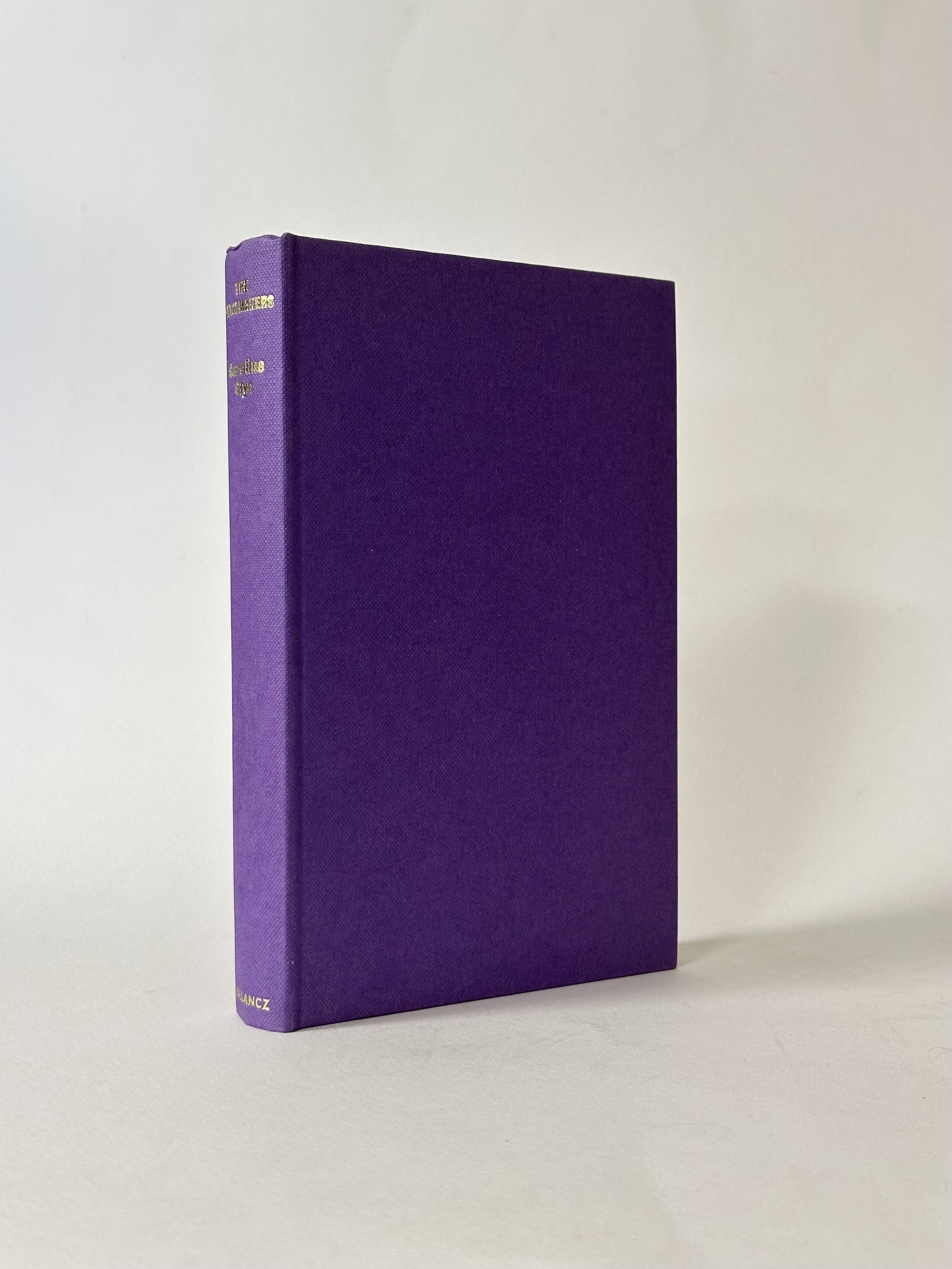 Image 1 of 3
Image 1 of 3

 Image 2 of 3
Image 2 of 3

 Image 3 of 3
Image 3 of 3




GLYN, Caroline. The Peacemakers
GLYN, Caroline. The Peacemakers. London: Gollancz. 1973. 8vo. First edition. Publisher’s purple cloth lettered in gilt to the spine, in the dust jacket, uncredited. Publisher’s retained copy with ‘file copy’ stamp to the front endpaper and pastedown. A smart example as such, the cloth clean and bright, the binding tight and square, the contents fine. The dust jacket unclipped (£2.50 net) and complete, again very smart, gently bumped along the corners and tips, ‘file copy’ stamp to rear panel, gently rubbed along the spine joints. A handsome example.
The final novel by this precocious and unusual author before her death aged just 32. Glyn was born into a family of novelists in Hampshire, moving to Paris in her early teens. Her hereditary preciousness saw her first novel published aged just 14, the best-selling child memoir, Don’t Knock the Corners Off. She published several novels when still in her teens and enjoyed such limelight—Time Magazine ran a fascinating article on her in 1966, when she was 19—without ceding any of her personal life, which she protected with a spiritual diligence. Her friend and only boyfriend, the author Robert Temple wrote that so few people actually knew Glyn, as she enjoyed silent woodland walks in the dead of night, declaring herself ‘a unicorn girl’. Her inclination towards a spiritual life led her to the convent, where she spent the rest of her short life after extensive travel in the US. This, her last published novel, follows a group in a commune led by a popular preacher, set in England and the US. The novel also draws upon early ecological activism and seems widely overlooked due in part to her premature passing—Glyn died while cleaning the floor of her convent. Temple, still a close confidant up to her death, later discovered Glyn had kept secret a congenital heart defect diagnosed in childhood from which doctors advised the chances of reaching her mid-thirties were scarce, retrospectively unravelling much of her raison d'être. The book itself, as with her other work, uncommon.
GLYN, Caroline. The Peacemakers. London: Gollancz. 1973. 8vo. First edition. Publisher’s purple cloth lettered in gilt to the spine, in the dust jacket, uncredited. Publisher’s retained copy with ‘file copy’ stamp to the front endpaper and pastedown. A smart example as such, the cloth clean and bright, the binding tight and square, the contents fine. The dust jacket unclipped (£2.50 net) and complete, again very smart, gently bumped along the corners and tips, ‘file copy’ stamp to rear panel, gently rubbed along the spine joints. A handsome example.
The final novel by this precocious and unusual author before her death aged just 32. Glyn was born into a family of novelists in Hampshire, moving to Paris in her early teens. Her hereditary preciousness saw her first novel published aged just 14, the best-selling child memoir, Don’t Knock the Corners Off. She published several novels when still in her teens and enjoyed such limelight—Time Magazine ran a fascinating article on her in 1966, when she was 19—without ceding any of her personal life, which she protected with a spiritual diligence. Her friend and only boyfriend, the author Robert Temple wrote that so few people actually knew Glyn, as she enjoyed silent woodland walks in the dead of night, declaring herself ‘a unicorn girl’. Her inclination towards a spiritual life led her to the convent, where she spent the rest of her short life after extensive travel in the US. This, her last published novel, follows a group in a commune led by a popular preacher, set in England and the US. The novel also draws upon early ecological activism and seems widely overlooked due in part to her premature passing—Glyn died while cleaning the floor of her convent. Temple, still a close confidant up to her death, later discovered Glyn had kept secret a congenital heart defect diagnosed in childhood from which doctors advised the chances of reaching her mid-thirties were scarce, retrospectively unravelling much of her raison d'être. The book itself, as with her other work, uncommon.
